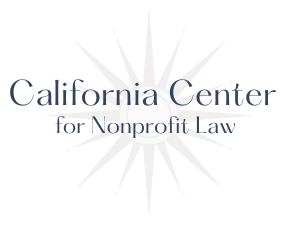
Giving Proper Notice of Board and Member Meetings
When operating a charitable organization, administrative tasks such as providing proper notice of board and member meetings may be low on the priority list. However, failing to give appropriate notice can lead to confusion, conflict, and even legal liability. Regardless of the size of your charity or the frequency of meetings, it is essential to provide proper notice to avoid future issues.
Look at Your Bylaws
Bylaws are governing documents that spell out how a charitable organization operates, so every organization should have them in place. These bylaws should specify the timeframe for advance notice of all types of meetings, outline how notice is to be given, identify who is responsible for providing the appropriate notice, and indicate whether any waiver of notice exists. Although state law sets minimum standards for these laws, the organization’s bylaws may contain stricter guidelines. If the bylaw provisions are more stringent than state law, the organization must follow the bylaws.
State Law on Meeting Notices to Directors of Charitable Organizations
The California Corporations Code governs meeting notices for nonprofit public benefit corporations, nonprofit religious corporations, and other types of corporations. For instance, Cal. Corp. Code §5211 applies to nonprofit public benefit corporations. This section states that unless otherwise provided in the organization’s bylaws:
Regular meetings of the board may be held without notice if the time and place of the meetings are specified in the bylaws or by the board. Special meetings of the board shall be held upon four days’ notice by first-class mail or 48 hours’ notice delivered personally or by telephone, including a voice messaging system or by electronic transmission by the corporation.
However, just as state law cannot override more stringent bylaws, bylaws cannot override these statutory notice requirements for special meetings.
Directors also can waive notice of these meetings. More specifically, the law does not require notice of a meeting to be given to a director who provides a waiver of notice or consent to holding the meeting or approval of the meeting minutes in writing. A director can execute a waiver, consent, or approval of minutes either before or after the meeting. Furthermore, if a director attends a meeting without protesting the lack of notice, they waive the lack of notice.
The meeting notice requirements for nonprofit public benefit corporations are generally the same as for nonprofit religious corporations, as noted in §9211. Directors of nonprofit religious corporations also have similar waiver and consent requirements. However, if a meeting of a nonprofit religious corporation is adjourned, no additional notice is required, even if the adjournment lasts more than 24 hours.
State Law on Notices for Board and Member Meetings for Charitable Organizations
Public benefit corporations may offer memberships and thus may have members. Under §5511, meetings at which members must or can take action require notice to the members entitled to vote in writing no less than ten days and no more than 90 days before the date of the meeting. However, if notice is given by mail, and the notice is not mailed by first-class, registered, or certified mail, that notice must be given at least 20 days before the meeting.
Notice of a members’ meeting must be given personally, by electronic transmission by the corporation, or by mail or other means of written communication, addressed to the member at their address as it appears on the corporation’s books or provided by the member to the corporation for notice. Suppose the corporation has no address for the member. In that case, it must give notice at the place where the principal office of the corporation is located or by publication at least once in a newspaper of general circulation in the county in which the principal office is located.
Finally, notice of a members’ meeting may be sent by electronic communication or other means of remote communication if the board determines it is necessary or appropriate due to an emergency as defined by law.
Frequently Asked Questions (FAQ)
What happens if a majority of directors adjourn a meeting to a later date? What notice requirements apply in that situation?
§5211(a)(4) states that a majority of directors can adjourn a meeting to another time and place. If they adjourn the meeting for more than 24 hours, they must provide notice of the adjournment to directors who were not present at the time of the adjournment.
What information must a notice to members of a nonprofit public benefit corporation contain?
The notice must include the place, date, and time of the meeting, as well as the means of electronic transmission by and to the corporation, such as electronic video screen communication, conference telephone, or other means of remote communication, if any, by which members may participate in the meeting.
Is there any difference between the contents of a notice for a regular meeting as opposed to a special meeting?
In the case of a special meeting, the notice must describe the general nature of the business to be transacted. In the case of a regular meeting, the notice must describe those matters that the board intends to present for action by the members at the time the notice is given. Additionally, the notice of any meeting at which directors are to be elected shall include the names of all nominees at the time the notice is given to members.
The California Center for Nonprofit Law Can Advise and Guide You
The California Center for Nonprofit Law focuses its practice on legal matters that affect charitable organizations, churches, and other nonprofit entities. We are here to represent your interests and provide the guidance you need. Call us today at the California Center for Nonprofit Law offices at (949) 892-1221, email us at info@NPOlawyers.com, or contact us online for more information. Together, we can navigate the myriad of laws and regulations that apply to your charity at the federal, state, and local levels.
